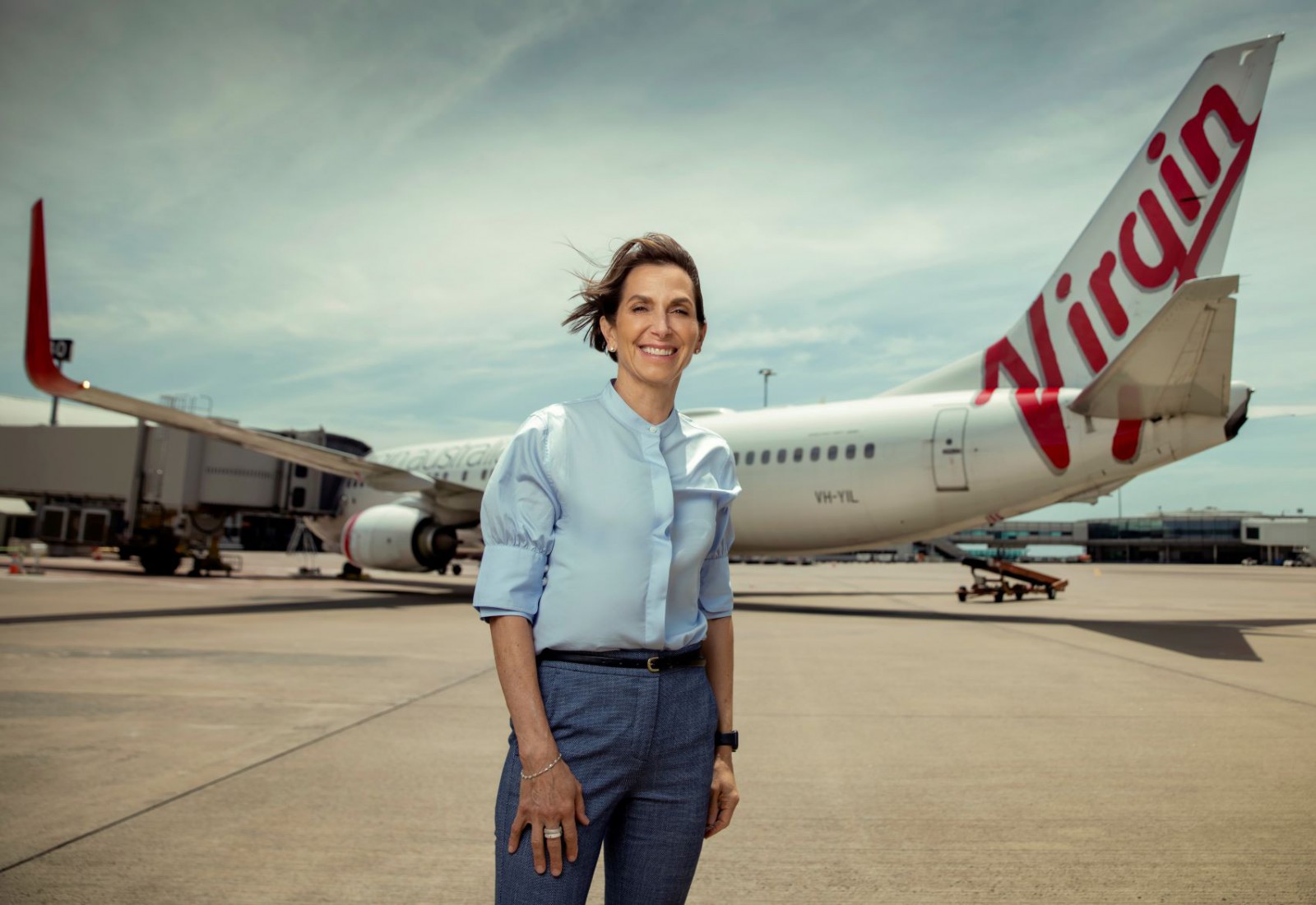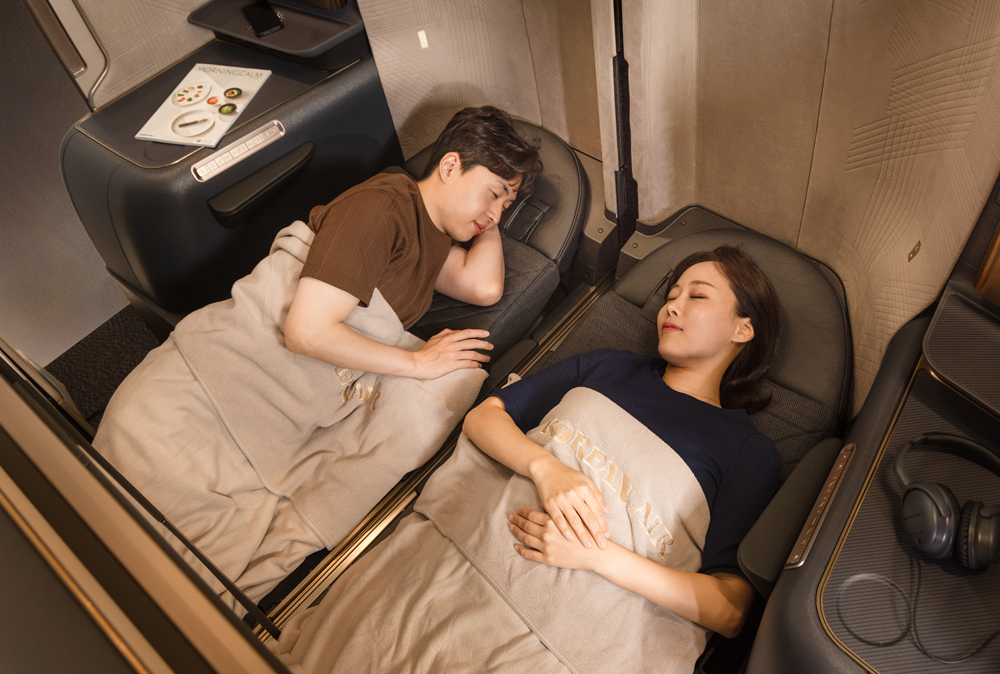Virgin boss predicts low fares to stay in market share battle
09 December, 2020
5 min read
By joining our newsletter, you agree to our Privacy Policy


New Virgin Australia boss Jayne Hrdlicka has predicted Australians will see a new round of fare wars as Virgin, Qantas and Rex fight for market share on major routes.
Hrdlicka told a CAPA Centre for Aviation webinar on Wednesday that the airline, which was now well-funded with “the strongest balance sheet of anybody in the marketplace right now” would not back off from fighting for its current market share.
An unexpected twist in Virgin's move to re-establish itself under new owners Bain Capital is a move by regional carrier Rex to move into the domestic jet market, initially on the lucrative Sydney-Brisbane-Melbourne triangle.
While acknowledging Rex was a good business with strong regional connections into major capital cities, she said the airline should expect the triangle to be “super-competitive because we’re all rebuilding the market”.
READ: Virgin votes for Boeing and the MAX
“Prior to COVID hitting, if you pulled Tiger out of the market, Qantas was 43 percent market share, Virgin Australia was 34 percent and Jetstar was the balance at roughly 23,’’ she said.
“We fully intend to hang on to roughly a third of the market — 33 (or) 34 percent — I’m sure Qantas fully intend to hang on to their market share so it’s going to be very competitive, which is fantastic for Australians.
“It will never have been cheaper to travel in this country and that’s great because it gets everybody back and flying.
“And who knows, we might grow the total market. That’s probably a big ambition, given where we’ve been in 2020, but prices will be very sharp for a long time to ensure that everybody resettles in the marketplace in the way they intend.”
Hrdlicka said it was important to maintain market share because the airline was making decisions on infrastructure that required scale.
“You plan your business based on the scale that you expect to be able to achieve and then you work really to make sure that you can do that,’’ she said. “So is anybody obsessed with a particular number? Well, not irrationally so but rationally so.”
Asked how much ahead of Rex the Virgin brand was in the Australian market, Hrdlicka said: “Oh look, I don’t think you can put the two in the same conversation frankly. There’s lots of data to back that up.”
The new Virgin boss said earlier her airline was adopting a “mid-market model”, the closest example of which was well-regarded US carrier JetBlue.
She said this would see the airline play to the biggest part of the market and consumers who wanted great prices but also wanted lounges, a frequent flyer program and VIP recognition.
They also did not want all the bells and whistles or to pay a premium.
“We think post-COVID that everybody’s going to be a bit more price-conscious than they’ve been before,’’ she said, noting that elitist behavior accepted in a strong economy could be “a bit on the nose”.
“I think executives will be much more conscious of their leadership shadows, wanting to be more grounded and connected with the broader workforce. I think the world will be a bit different, I don’t think we should be expecting that we’re all just hopping back on to the bus we hopped off. It’s a different bus.”
On the question of international flying, Hrdlicka said the airline did not expect to return to widebody flying in the next 18 to 24 months.
She said the first priority was domestic Australia but predicted short-haul international travel to destinations such as New Zealand would return in 2021.
“And we’ll be ready for that when it comes and when it feels commercially right to do that,’’ she said.
She noted that travel was just starting to come out of a “deep, deep freeze and I don’t think the most important thing to a traveler today is what your international network is going to look like.”
“Our frequent flyers have been really clear to us about what matters most to them and that’s not it.
“But of course, it will become really important to them and we’ve got a great, deep mix of partners.
“So we’ll be able to augment what we’re not doing ourselves in the short term with partners.”
Hrdlicka nominated Delta Air Lines, Etihad and Singapore Airlines as three major partners which would be three important anchors in terms of international travel along with a mix of other partners.
Earlier Wednesday, Virgin announced it was restructuring its order for Boeing 737 MAX aircraft by axing 23 MAX 8 aircraft and pushing back the delivery of 25 Boeing MAX 10 aircraft by two years to the middle of 2023.
The airline chief agreed that the MAX 10 would be suited to trans-continental and short-haul international flying but could not be relied on to fill out its international network.
But she did not think fleet would be a constraint, noting COVID had left all airlines with increased flexibility in terms of access to aircraft.
“It’s easier than it’s been probably in two decades and the pricing for aircraft now is incredibly attractive,’’ she said.
Next Article
2 min read
Qantas triples profit but misses mark

Get the latest news and updates straight to your inbox
No spam, no hassle, no fuss, just airline news direct to you.
By joining our newsletter, you agree to our Privacy Policy
Find us on social media
Comments
No comments yet, be the first to write one.
